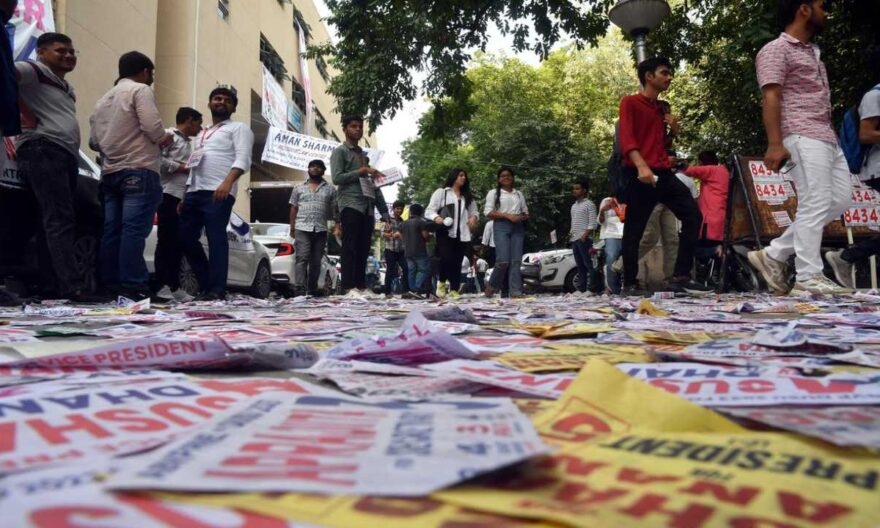
The Delhi High Court has dismissed a Public Interest Litigation (PIL) challenging the three-year age relaxation granted to candidates participating in the upcoming Delhi University Students’ Union (DUSU) elections.
A bench of Chief Justice Satish Chandra Sharma and Justice Sanjeev Narula upheld that the age relaxation served as an inclusive measure in response to the COVID-19 pandemic, enabling a greater number of students to participate in the democratic process.
The petitioner, Harish Kumar Gautam, alleged that the August 27 notice issued by the university, which extended the upper age limit for undergraduate students from 22 years to 25 years and for postgraduate students from 25 years to 28 years, would lead to violence, hooliganism, unauthorized intrusion into academic institutions, and an unchecked display of financial and muscle power.
However, the court found no merit in the petition by the DU alumnus. It observed that there was no demonstrable public interest in the matter, and there was an obvious lack of a connection between the alleged detrimental effects of the decision and the issue of age relaxation for student elections.
“The characterization of this petition as a PIL is an abuse of the legal process. The primary issue under scrutiny, which pertains to the relaxation of age limits for election candidates, does not inherently pose any harm to public interest or the democratic election process,” the September 15 order stated.
“Consequently, there is no justifiable reason for this court to interfere with the decision made by the respondent university’s Executive Council. Therefore, the petition is dismissed,” it added.
The DUSU elections are scheduled for September 22, marking the first time in four years that these elections will be held. The last elections took place in 2019. The elections were not held in 2020 and 2021 due to COVID-19, and possible disruptions to the academic calendar prevented their conduct in 2022.
The court, in its order, noted that the COVID-19 pandemic could have resulted in educational gaps for many students, causing them to exceed the previous age limits for election eligibility. This rationale to extend the age eligibility was deemed “well-reasoned.”
“No reliable or compelling evidence has been presented to this Court to show that a change in age eligibility would lead to such negative consequences,” the court stated.




